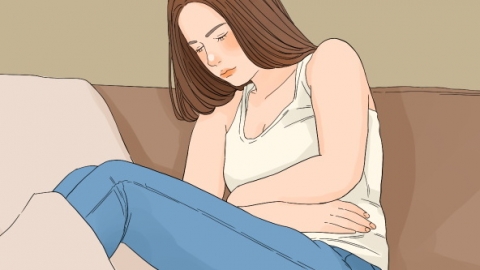What are the potential risks of taking emergency contraceptive pills frequently?
Generally, overdose of emergency contraceptive pills may cause harms including menstrual disorders, reduced contraceptive effectiveness, endocrine disorders, increased risk of gynecological diseases, and physical discomfort. Detailed explanations are as follows:

1. Menstrual disorders: Emergency contraceptive pills contain high doses of progestin, and overdose can disrupt the normal growth and shedding rhythm of the endometrium. Some individuals may experience early or delayed menstruation; in severe cases, menstrual periods may be prolonged, menstrual flow significantly increased or decreased, or even temporary amenorrhea.
2. Reduced contraceptive effectiveness: Emergency contraceptive pills are designed for occasional emergency use, not for regular contraception. Frequent use can cause hormonal imbalances in the body, interfere with the normal ovulation cycle, and reduce the drug's effectiveness in inhibiting ovulation or preventing implantation of a fertilized egg, thereby increasing the probability of unintended pregnancy.
3. Endocrine disorders: Long-term overdose of high-dose progestin disrupts the body's natural hormonal balance and affects the normal function of the hypothalamic-pituitary-ovarian axis. This may lead to skin deterioration, such as acne and pigmentation, and may also involve mood swings, insomnia, and abnormal weight changes.
4. Increased risk of gynecological diseases: Frequent fluctuations in hormone levels reduce the stability of the reproductive system. It may cause excessive endometrial hyperplasia, increasing the risk of endometritis; it may also affect the normal secretion of cervical mucus, reduce vaginal resistance, and make bacterial growth easier.
5. Physical discomfort: After overdosing on emergency contraceptive pills, some individuals may experience significant gastrointestinal reactions such as nausea, vomiting, and loss of appetite. Symptoms such as dizziness, headache, breast tenderness, and fatigue may also occur, typically appearing within several days after taking the medication.
It is recommended to avoid using emergency contraceptive pills as a regular contraceptive method. Safer and more effective alternatives such as condoms or short-term oral contraceptives are preferable. Additionally, maintaining a regular sleep schedule and healthy diet helps stabilize hormone levels and reduce adverse effects of medication on the body.




